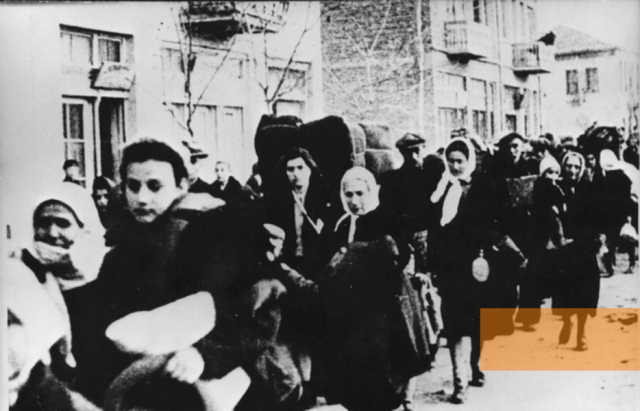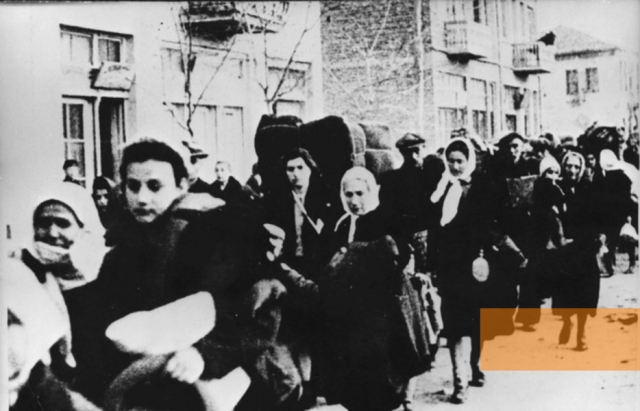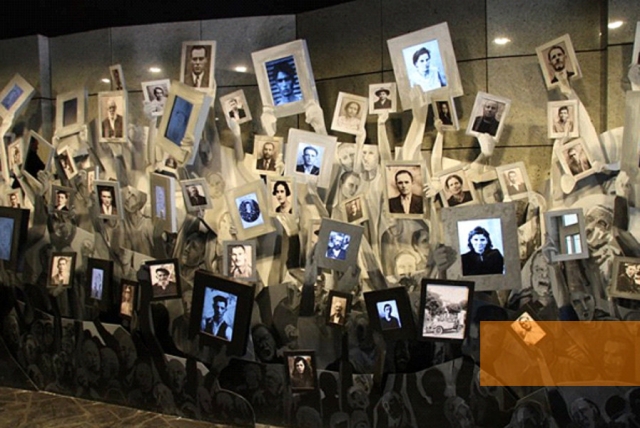Ordinary Bulgarian citizens did not allow this either, because Jews were their neighbours, friends, colleagues at that time. I will give an example again with my family, which was deported from Stara Zagora to Lukovit, where they stayed to live with a Bulgarian family, maintaining good relations to the end. Not to say that they helped them with money, the keeper of the public house and the grocer in the village gave them things on credit with the absolute knowledge that probably they would not be repaid the money. This attitude was not demonstrated towards my father's family alone. It was the same in many other cities in Bulgaria, where there were deported Jewish families.
Therefore, in no case can the credit for the salvation of Bulgarian Jews be attributed to an individual, because many Bulgarian citizens contributed towards it. Another example is the signing of the first list of people from cities with larger Jewish communities, who had to be sent to the camps, by representative of Nazi Germany in Bulgaria Beckerle and Commissioner for Jewish Affairs Belev. My grandfather was on the list and he told me that many of the railwaymen had warned the people to take measures, because they had been ordered to put aside wagons to transport them. However, thanks to the demonstrations of the years 1942-43 these schemes were cancelled at the last minute.

Why didn’t Jews from Thrace and Macedonia enjoy the same fate, although they were administered by Bulgaria at that time?
There is hardly a precise answer to this question. One version is that Germany helped Bulgaria have Southern Dobrudzha returned and these people were somehow traded in exchange for this. The study by Ass. Prof. Rumen Avramov "Salvation and Fall" and the subsequent two-volume publication on the basis of documents "Deportation of Jews from Vardar Macedonia, Thrace and Pirot; Documents from the Bulgarian Archives" compiled by him and Prof. Nadia Danova describe things in great detail by documents. The documents indicate that at that time there was an arrangement with the Ministry of Transport, namely that the Bulgarian State Railways (BDZ) should transport Jews from those areas to the Treblinka camp against payment for the "service".
Does Bulgarian society feel guilty today regarding this case in your opinion?
The nationalist moment in Bulgaria has unfortunately intensified in recent years, not without the involvement of scientists or public figures, which I perceive as a compensation of our complex and difficult transition. Somehow, we, Bulgarians, are nihilists and this is a kind of artificial attempt to make us feel self-confident but it cannot happen that way. Another thing that can be noticed after the return of Simeon Saxe-Coburg is the desire to create the myth of the good tsar. There were some attempts to create a halo around the royal family and this trend is not over yet.

Skopje has recently opened a memorial of Jews deported to camps. How does this monument fit in the new controversial centre of the Macedonian capital in your opinion?
The memorial in memory of those Jews who perished in Nazi camps has nothing to do with the new centre of Skopje, which represents megalomania irrelevant to historical reality. However, after the war, especially after the changes following the collapse of former Yugoslavia, the possessions had been returned to the Jewish minority but these funds had nowhere to go because the people were gone. The few who are still living have decided to build this memorial with these funds, which is why it has nothing to do with the state and the mint of money that the Macedonian government has wasted for these monuments.
The complex has only one exhibit, in addition to the historical chronicle, which is a restoration of a wagon with the following inscription: "BDZ Bulgaria". Do you think that this complex can be assigned to the anti-Bulgarian propaganda policy in Macedonia?
Nothing is left of these people because they were transported by these wagons and this remains as a sign. This is the memory of the people and for me this is not an anti-Bulgarian propaganda, these are the facts. It is a different matter that someone else uses it that way. The Bulgarian state does not assume any responsibility for these events. Yes, the fact that nearly 50,000 Jews were saved in the old Bulgarian territories is remarkable, I am part of the first generation that was born after these events, and Bulgaria is my country and I have chosen to live and work here. Along with this, it is impossible not to assume responsibility for the nearly 11,000 Jews, including many children who perished in the death camps, this could have been prevented. What happened in the old Bulgarian territory proves that this was really possible.

Do you think the Jewish issue has received enough attention on the part of the Bulgarian media after World War II?